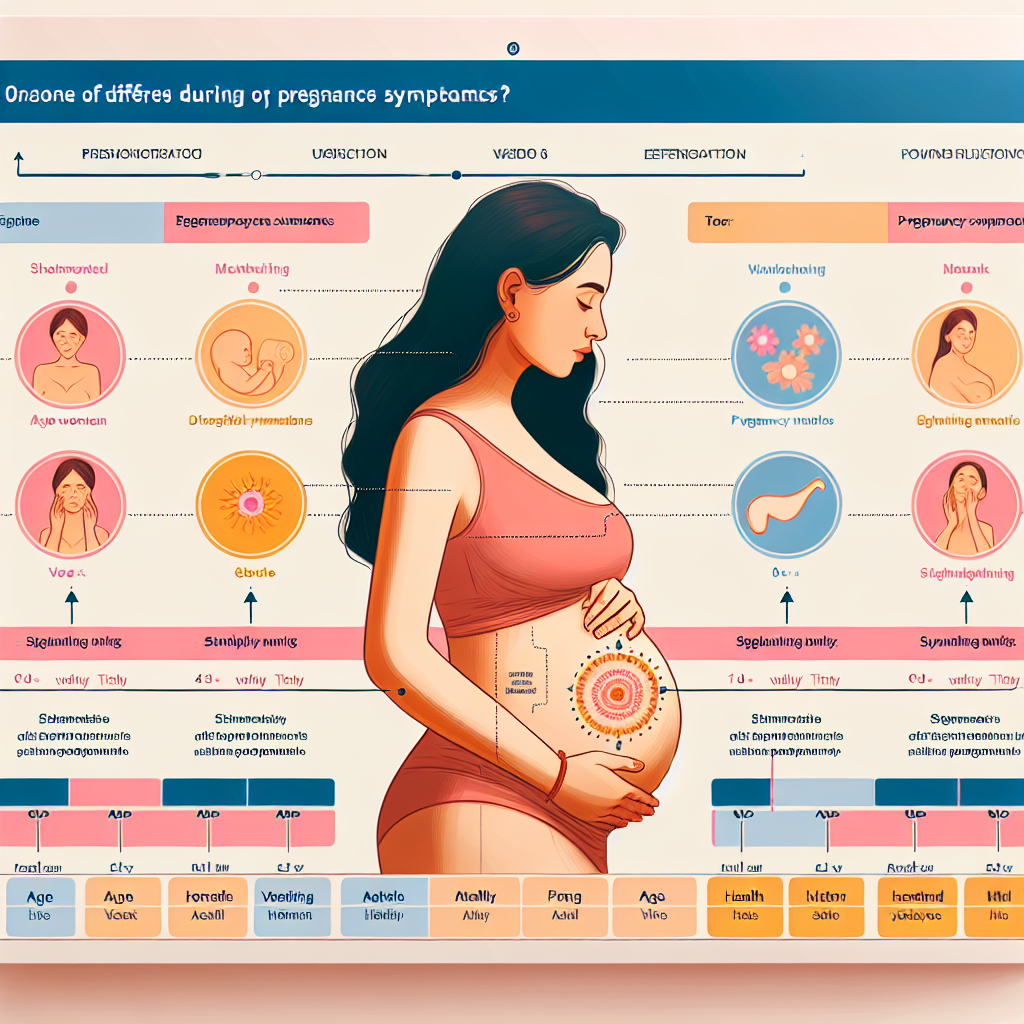Discover when pregnancy symptoms typically begin and learn about the early signs to watch for. Understand the timeline and factors influencing symptoms.
For many women, the journey into pregnancy begins with a series of physical and emotional changes that can signal the onset of this significant life event. Understanding when pregnancy symptoms typically start can help women prepare for the months ahead and recognize the early signs of pregnancy. This article will explore the timeline of pregnancy symptoms, what to expect during this time, and how various factors can influence the onset of these signs.

The Timeline of Pregnancy Symptoms
The Fertilization Process
Pregnancy officially begins with fertilization, when a sperm cell successfully fertilizes an egg. This typically occurs within a few days after ovulation. However, pregnancy symptoms do not appear immediately following fertilization. The body undergoes several hormonal changes as the fertilized egg travels down the fallopian tube to implant itself in the uterus.
Implantation and Its Role in Symptoms
Implantation occurs about six to ten days after fertilization. This is when the fertilized egg attaches to the uterine lining, and hCG (human chorionic gonadotropin) begins to be produced. It is around this time that some women may start to experience early symptoms of pregnancy, although this varies significantly from person to person.
Common Early Pregnancy Symptoms
While every woman’s experience may differ, some common early pregnancy symptoms can begin shortly after implantation. These may include:
- Missed Period: One of the most common first signs of pregnancy is a missed menstrual period. This typically occurs about two weeks after fertilization.
- Breast Changes: Many women report breast tenderness, swelling, or sensitivity early in their pregnancy. These changes can begin as early as one to two weeks after conception.
- Fatigue: Feeling unusually tired or fatigued can be an early sign of pregnancy. This may occur due to hormonal changes and increased energy demands on the body.
- Nausea and Vomiting: Often referred to as « morning sickness, » nausea can start as early as four to six weeks into a pregnancy, although it can vary widely in timing and severity.
- Frequent Urination: Increased urination can start as early as six weeks into pregnancy as the body adjusts to hormonal changes and increased blood flow to the kidneys.
- Mood Swings: Hormonal fluctuations during early pregnancy can lead to mood swings and emotional changes, which can begin around the same time as other early symptoms.
Variability in Symptom Onset
It’s essential to note that the onset of pregnancy symptoms can vary greatly among individuals. Factors influencing when and how symptoms manifest can include:
- Hormonal Levels: Different women may produce varying levels of hormones, affecting the timing and severity of symptoms.
- Individual Sensitivity: Some women may be more sensitive to hormonal changes and thus experience symptoms earlier or more intensely.
- Previous Pregnancy: Women who have been pregnant before may notice symptoms earlier or differently in subsequent pregnancies due to their bodies being more attuned to the changes.
Recognizing Early Pregnancy Symptoms
Understanding Personal Body Signals
Recognizing early pregnancy symptoms requires being attuned to your body. Pay attention to any significant changes in your physical or emotional state. Keeping a journal of your menstrual cycle and any symptoms experienced can help identify potential early signs of pregnancy.
Testing for Pregnancy
If you suspect you may be pregnant based on early symptoms, taking a home pregnancy test can provide confirmation. Most tests are sensitive enough to detect hCG levels around the time of a missed period. For the most accurate results, consider testing with first-morning urine, when hCG levels are most concentrated.
Internal Resources for Further Reading
For additional insights into pregnancy-related topics, explore our internal resources:
- Pregnancy Symptoms: Detailed information about various symptoms experienced during pregnancy.
- Pregnancy Testing: Comprehensive information on different pregnancy testing methods and their effectiveness.
- Postpartum Care: Resources on caring for oneself after childbirth.
External Resources for Additional Information
To further your understanding of pregnancy symptoms and the early signs of pregnancy, consider visiting these reputable external resources:
- American Pregnancy Association: A reliable source of information about pregnancy and prenatal care. (Visit: American Pregnancy Association)
- Mayo Clinic: Offers expert advice on pregnancy symptoms and overall maternal health. (Visit: Mayo Clinic)
- WebMD: A comprehensive resource for understanding early pregnancy symptoms and health information. (Visit: WebMD)
Frequently Asked Questions (FAQs)
How soon can pregnancy symptoms start?
Early pregnancy symptoms can start as soon as a week after conception, although some women may not experience symptoms until after a missed period.
Can you have pregnancy symptoms before a missed period?
Yes, some women may experience symptoms such as breast tenderness and fatigue before a missed period, particularly if they are more attuned to their bodies.
How long do early pregnancy symptoms last?
Early pregnancy symptoms may vary in duration and intensity. Symptoms like nausea and fatigue may last for several weeks, while others may be short-lived.
Should I take a pregnancy test if I suspect I’m pregnant?
If you suspect you might be pregnant based on symptoms, it is advisable to take a pregnancy test. For the most accurate results, wait until the first day of a missed period.
Conclusion
Understanding when pregnancy symptoms start is vital for women navigating the early stages of pregnancy. Recognizing the timeline and the various signs that may indicate pregnancy can help women prepare for the journey ahead. Each woman’s experience is unique, influenced by various factors such as hormonal levels and individual sensitivity.
By being informed about early symptoms and the testing process, women can take proactive steps in their reproductive health journey. Whether you’re eagerly anticipating a positive test or seeking to understand your body better, knowing what to look for can empower you to make informed decisions for yourself and your family.